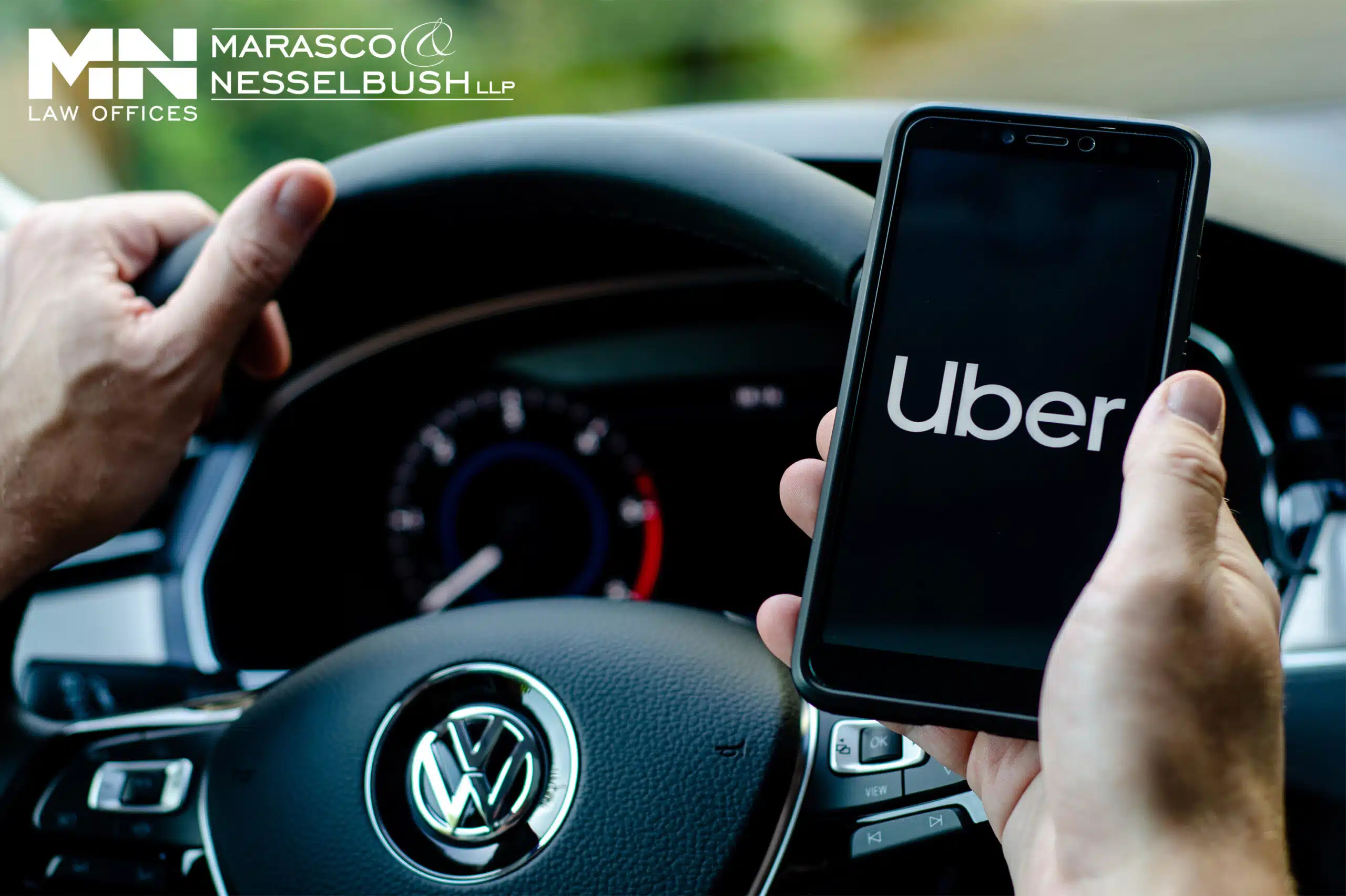
With Rideshare companies, such as Uber and Lyft, exponentially growing within the last decade, some risks and liabilities come with this. Rideshare drivers use their personal motor vehicles to assist in the transportation needs of others. Millions of users each year use rideshare companies, rather than public transportation, to get around more quickly and efficiently.
The Uber Technologies Inc. website describes the rideshare services as the best way to get around town and stresses the importance of finding a “reliable ride to a safe destination.” With this statement, many people believe that Uber goes to extraordinary lengths to ensure the safety of passengers and will assume liability if one of its drivers causes an accident. That is not necessarily always the case. Uber has taken several steps to make it difficult for courts to impose traditional respondeat superior concepts of liability encapsulated in CC Art. 2320 and RS 9:3921. In short terms, Uber classifies its drivers as independent contractors, not employees of the company itself. This means:
- Car accident victims cannot hold the company liable for its drivers’ negligent actions when they are not actively on the Uber app, meaning they are not on the clock.
- If the driver gives another passenger a ride and logs off during the process or gives the ride privately, Uber will not cover the accident.
- If the driver logged into the app but was parked while waiting for a ride when the accident occurred, Uber will only cover the accident if the driver’s auto insurance denies coverage.
- If the driver was giving a passenger a ride or picking them up/dropping them off and got in an accident, Uber offers insurance options to cover the accident, such as $1,000 third-party liability, uninsured or underinsured motorist coverage, and contingent comprehensive and collision coverage.
Per Uber’s driver requirements, all drivers must have a valid driver’s license, legal documents that permit them to work in the United States, and undergo an online background check. The minimum requirements to become an Uber driver in Rhode Island are at least a 15-year-old or newer vehicle, a 4-door vehicle, a vehicle in good condition with no cosmetic defects, and no commercial branding on the vehicle. All drivers must maintain their own insurance policy in accordance with state and local laws. Additionally, Uber maintains automobile liability insurance on behalf of all drivers in the United States.
Rideshare companies are constantly evolving and exploding in Rhode Island and throughout the United States. If you are faced with injuries or liability following an accident in an Uber, turn to Marasco & Nesselbush, the most trusted injury Law Firm in Rhode Island. Our experienced Uber accident attorneys understand the complexity of these accidents and injuries faced by drivers and passengers and will work with you on solving the case and receiving the appropriate compensation.